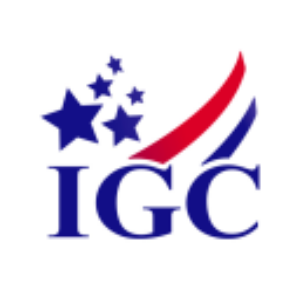Promising Results: TGR-63 Enhances Memory in Alzheimer's Mouse Model
TGR-63 is a therapeutic candidate designed to disrupt the structure of the amyloid-β (Aβ) peptide, mitigating symptoms such as memory loss and disrupted learning ability, signs of cognitive impairment. TGR-63 targets a critical neuropathological hallmark of Alzheimer's Disease by addressing the misfolding and aggregation of Aβ peptides, specifically the toxic Aβ42 aggregation species associated with neuronal toxicity and cognitive decline. The cognitive impact of TGR-63 was assessed using two renowned behavioral tests, the Novel Object Recognition ("NOR") Test and the Morris Water Maze ("MWM"), conducted on APP/PS1 genetically modified Alzheimer's mice.
Ram Mukunda, CEO, commented, "These results underscore the efficacy of TGR-63 in enhancing spatial memory function in an Alzheimer's disease model, offering promising implications for potential therapeutic interventions in Alzheimer's and related neurodegenerative conditions. The improvements in memory acquisition, consolidation, spatial memory formation, and retrieval highlight its potential in addressing cognitive impairment in Alzheimer's Disease. We are optimistic about TGR-63's potential and anticipate advancing it towards a Phase 1 trial, enriching our clinical portfolio."
The NOR Test, a cornerstone of preclinical research, evaluates recognition memory, a component of declarative memory responsible for recognizing previously encountered stimuli. Widely applicable across neuropharmacology and neurobiology, this test provides crucial insights into memory function and potential interventions for memory-related disorders such as Alzheimer's. During the NOR Test, Alzheimer's mice displayed a significantly diminished Discrimination Index ("DI") compared to normal mice, indicating impaired long-term memory. TGR-63-treated Alzheimer's mice showed a
The Morris Water Maze ("MWM") is a pivotal tool in cognitive research, offering deep insights into spatial learning and memory processes. In this test, mice are trained to find a hidden platform in a pool over four days. Particularly crucial in neurodegenerative diseases like Alzheimer's, the MWM allows researchers to explore spatial navigation and memory formation mechanisms. Over four days of training, TGR-63-treated mice exhibited a statistically significant reduction in the time required to locate the hidden platform, reflecting improved spatial memory acquisition. Additionally, when the platform was removed, the untreated AD mice spent
IGC Pharma is currently underway with a Phase 2b trial in
About IGC Pharma Inc. (dba IGC):
IGC Pharma is pursuing innovative solutions to fight Alzheimer's disease and related challenges. IGC Pharma's portfolio comprises five assets, all with a singular mission - to transform the landscape of Alzheimer's treatment. IGC-AD1 and LMP target neuroinflammation, Aβ plaques, and neurofibrillary tangles. IGC-AD1 is currently in a Phase 2b clinical trial for agitation in dementia due to Alzheimer's (clinicaltrials.gov, NCT05543681). TGR-63 targets Aβ plaque to disrupt the progression of Alzheimer's disease. IGC-M3 targets the inhibition of Aβ plaque aggregation with the potential to create a profound impact on early-stage Alzheimer's. IGC-1C targets tau and neurofibrillary tangles in a forward-thinking approach to Alzheimer's therapy. In parallel, IGC Pharma is at the forefront of Generative AI development, with projects including clinical trials, early detection of Alzheimer's, and drug interactions with cannabinoids.
Forward-Looking Statements:
This press release contains forward-looking statements. These forward-looking statements are based largely on IGC Pharma's expectations and are subject to several risks and uncertainties, certain of which are beyond IGC Pharma's control. Actual results could differ materially from these forward-looking statements as a result of, among other factors, the Company's failure or inability to commercialize one or more of the Company's products or technologies, including the products or formulations described in this release, or failure to obtain regulatory approval for the products or formulations, where required, or government regulations affecting AI or the AI algorithms not working as intended or producing accurate predictions; general economic conditions that are less favorable than expected; the FDA's general position regarding cannabis- and hemp-based products; and other factors, many of which are discussed in IGC Pharma's
View source version on businesswire.com: https://www.businesswire.com/news/home/20240228605279/en/
Investors
IMS Investor Relations
Rosalyn Christian
igc@imsinvestorrelations.com
(203) 972-9200
Media
JVPRNY
Janet Vasquez
jvasquez@jvprny.com
(212) 645-5498
Source: IGC Pharma, Inc.








